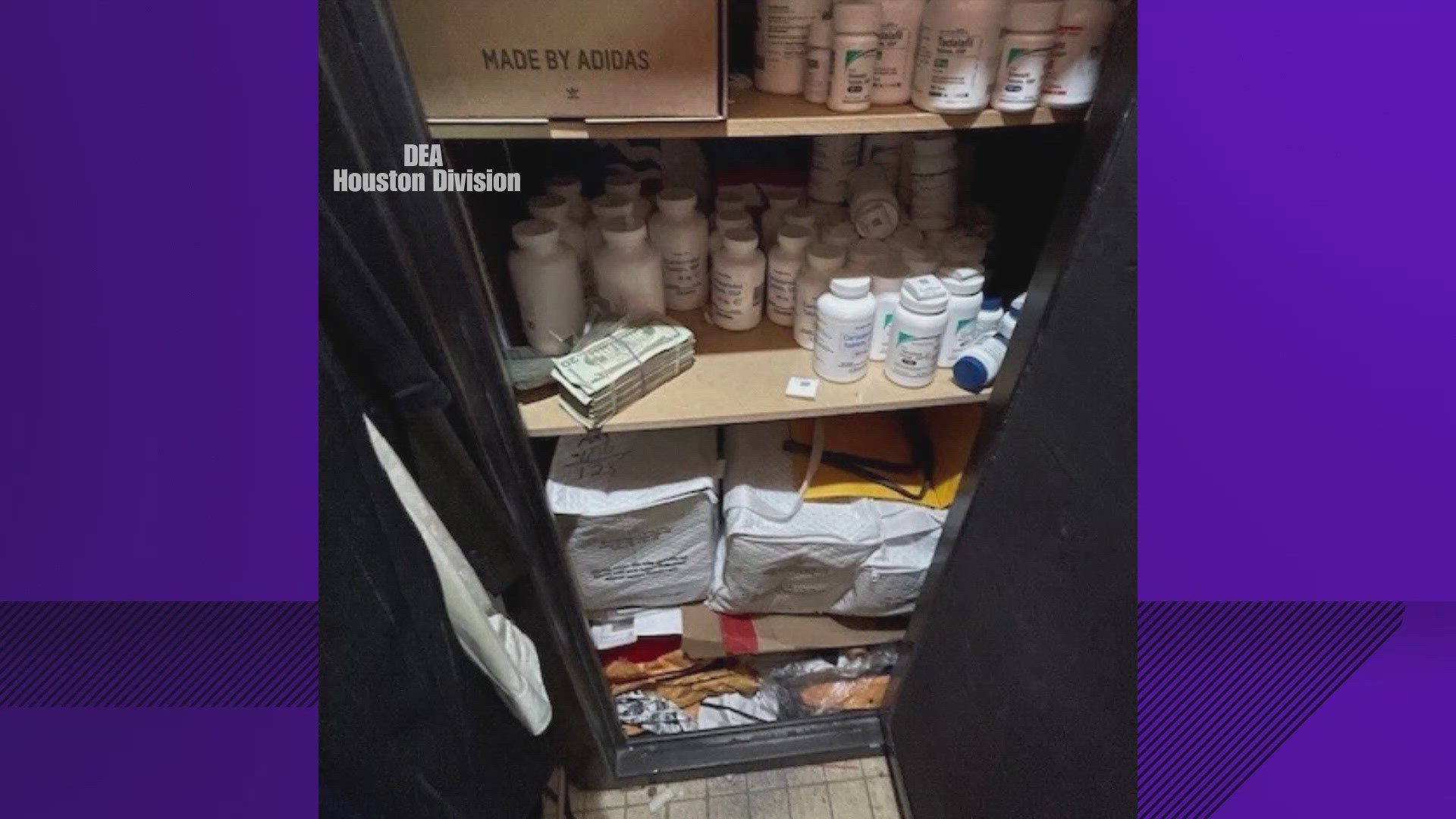HOUSTON — Charges have been unsealed in a massive pharmaceutical drug bust that was part of a criminal operation that distributed opioids and other drugs with a black-market value of $1.3 billion.
Most of the 13 people charged, including three Houstonians, have pleaded guilty. It was a sophisticated system with prescription drug distributors funneling drugs like oxycodone into Houston pill mills.
Houston is considered a hot zone for pharmaceutical opioids on the black market. The city’s major east-west and north-south freeways allow for easy distribution.
This investigation began in 2019 targeting distributors of pharmaceutical opioids and other commonly abused prescription drugs. Five distribution companies bought drugs legally from big pharma, then shipped them to pill mills, largely in Houston. There the drugs were sold using illegal prescriptions.
Velencia Griffin, 42, Kendal Lyons, 29, and Andre Reid, 44, of Houston, pleaded guilty in the Southern District of Texas to conspiracy to unlawfully distribute and dispense, and possess with intent to distribute controlled substances. Each faces up to 20 years in prison.
Ten others in other states -- executives, sales reps and brokers -- were also arrested. Seven of them have pled guilty.
"Look, the biggest thing about this case is we're going after drug dealers, but drug dealers in a different light. A lot of these drug dealers were lab coats with name tags. They own pharmacies. They're executives. They're educated. But they're still drug dealers," DEA Special Agent in Charge Daniel Comeaux said.
The group sold 70 million pills and 30 million doses of other drugs to a black-market tune of $1.3 billion.
The pill mills were often pop-ups, getting a license to operate for a brief period, then shut down and moved on to stay ahead of law enforcement.
The DEA’s diversion team, which monitors the sale of pharmaceuticals, spotted these small "mom and pop" pharmacies doing unusually high volume sales and investigated.
Agents said this ring significantly contributed to the opioid crisis.

